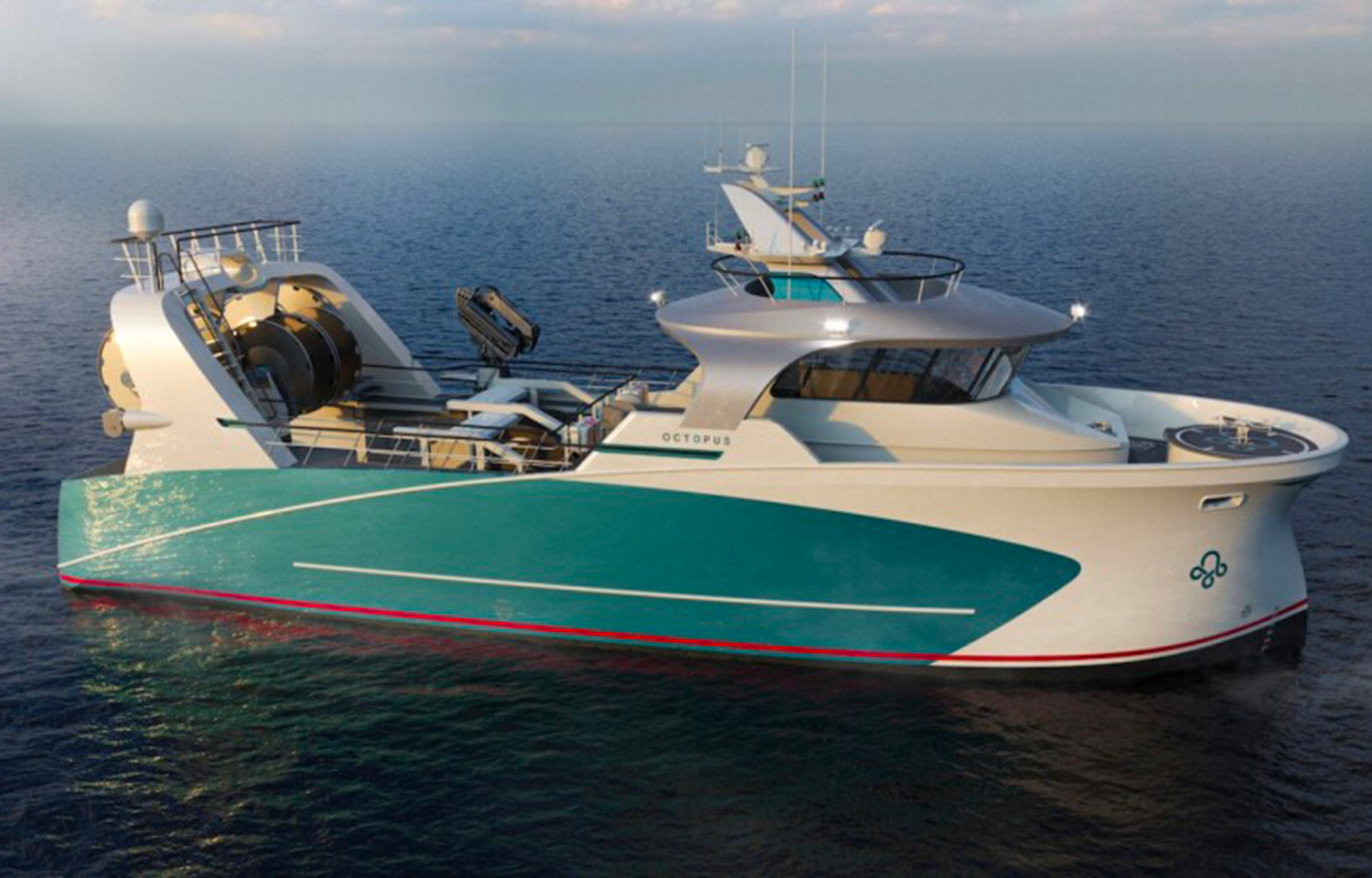Dutch shipyard Padmos has shared the first images of its multifunctional Octopus project, which it is touting as a fishing “vessel of the future.”
Walter van Harberden, a naval architect and one of the directors of the shipyard, led the development of the Octopus, which has diesel-electric-powered engines that can be converted so it is entirely powered by another energy source thanks to the vessel’s modular structure. The boat will have a bare hull with removable containers for storing batteries or hydrogen, according to Hook and Net Magazine.
“Like a real octopus, the vessel will have several strings to its bow. It can be adapted to different fishing techniques: fly-shooter, single-trawl, or twin-rig trawl,” he said. "The containers will allow fish to be chilled or frozen, and unloading products will be less tedious thanks to the use of a crane.”
The vessel’s modularity will also enable it to be used for storage or other uses in the fishing offseason, according to van Harberden.
“When the fishing season is over, we can replace the containers for storing fish with containers for other types of equipment,” he said.
The construction of the first Octopus will begin August 2024, with Jacob Brands, a Dutch fisherman, having placed the first order. Brands’s project will cost around EUR 6 million to EUR 8 million (USD 6.5 million to EUR 8.7 million) for the almost 100-foot vessel, depending on his chosen features.
The Padmos Shipyard specializes in the construction of fishing boats and repairs on fishing vessels and workboats and previously developed the cutting-edge E-Pusher 1 – the first modular, zero-emission, all-electric inland waterway tugboat. Padmos Managing Director Leon Padmos said the Octopus project gives him hope that the fishing industry can stay relevant and profitable in a fast-changing world.
“It’s very futuristic, and it’s a modular and tailor-made boat,” Padmos Managing Director Leon Padmos said. “We like innovation. If possible, we always stay one step ahead.”
Padmos said the Dutch government is reviewing the Octopus design, and he’s hoping to gain full approval and backing for the project soon.
“Discussion with the Dutch authorities are ongoing, knowing that the fishing industry is changing and that the industry needs to find answers to concerns such as the shortage of resources and the ecological transition,” Padmos said. “There will always be fishing activity.”








